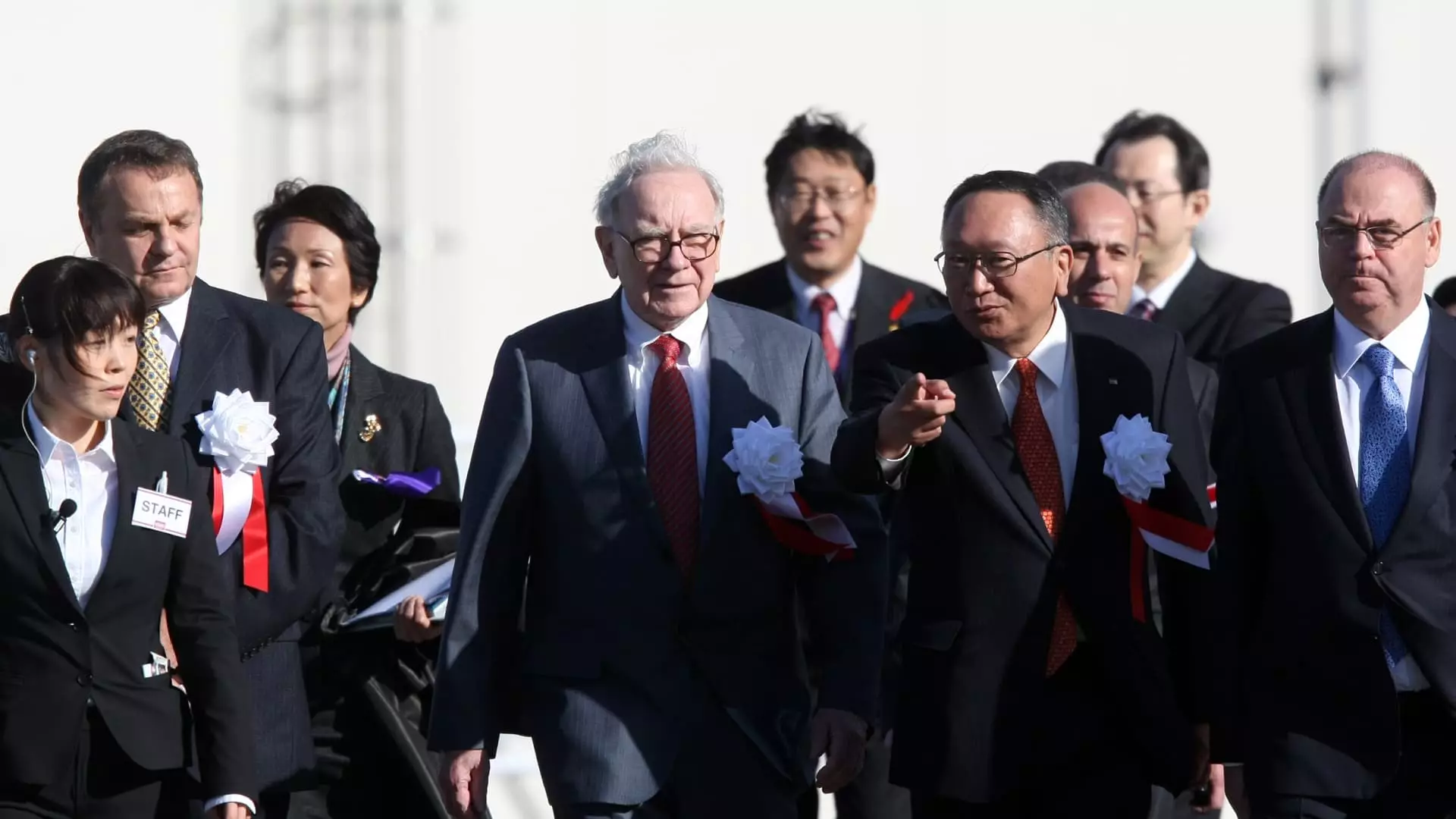In his recent correspondence with shareholders, Warren Buffett revealed a notable evolution in Berkshire Hathaway’s investment strategy concerning Japanese companies. The billionaire investor underscored his confidence in the long-term potential of these firms, moving beyond a previously enforced limit of 10%. This change reflects not only a favorable assessment of these trading houses but also highlights Buffett’s broader investment philosophy, which often emphasizes patience and strategic alignment.
Berkshire’s investments include five of Japan’s most significant “sogo shosha” or trading houses—Itochu, Marubeni, Mitsubishi, Mitsui, and Sumitomo. These entities are not just pivotal players in Japan’s economic landscape; they boast a diversified investment strategy akin to that of Berkshire itself. By gathering interests across various sectors both domestically and internationally, these firms embody a model that aligns with Buffett’s investment ethos. The decision to expand ownership demonstrates a strategic pivot, indicating that Berkshire Hathaway is not merely reacting to market volatility but is committed to long-term growth in this domain.
As of the close of 2024, Berkshire’s stakes in these Japanese firms were valued at an impressive $23.5 billion, acquired at a cumulative cost of $13.8 billion. The differential in market value reflects not only the strength of the Japanese trading houses but also the acumen with which Berkshire has navigated these investments. Buffett’s acknowledgment of the management practices and capital allocation strategies of these companies reveals an appreciation for their operational competence, even amidst fluctuating market conditions.
Despite experiencing substantial losses recently—most notably, Mitsubishi and other firms plunged significantly—it appears Buffett remains steadfast in his belief in their recovery potential. His notion that “over time, you will likely see Berkshire’s ownership of all five increase somewhat” indicates an optimistic outlook towards market corrections and recovery.
Buffett’s strategic decision to sell Japanese bonds to finance Berkshire’s equity stakes illustrates a savvy risk management approach. By issuing yen-denominated bonds, he effectively mitigates the risks associated with foreign exchange fluctuations, a move that is underscored by reported gains of $2.3 billion from these investments. With the dollar’s recent strength against the yen bolstering these gains, Buffett’s yen-based strategy carefully balances risk with opportunity.
Additionally, the projection of annual dividend income nearing $812 million from these holdings underscores the sustaining cash flow that Berkshire expects to derive from its engagements in Japan. This foresight indicates a preparatory stance for both current and future market conditions.
Buffett’s assurance regarding the future stewardship of these investments underlines a generational continuity within Berkshire Hathaway. He explicitly states his belief that successor Greg Abel and subsequent leaders will maintain these positions long-term, highlighting a philosophy ingrained in the principles of patient investing. This outlook suggests that Berkshire’s relationship with these trading partners will deepen, fostering new collaborative opportunities.
Berkshire Hathaway’s evolving involvement in Japan’s trading houses is emblematic of a well-considered strategy rooted in long-term value creation, adaptability, and risk management, setting a precedent for successful investing in a complex global marketplace.

